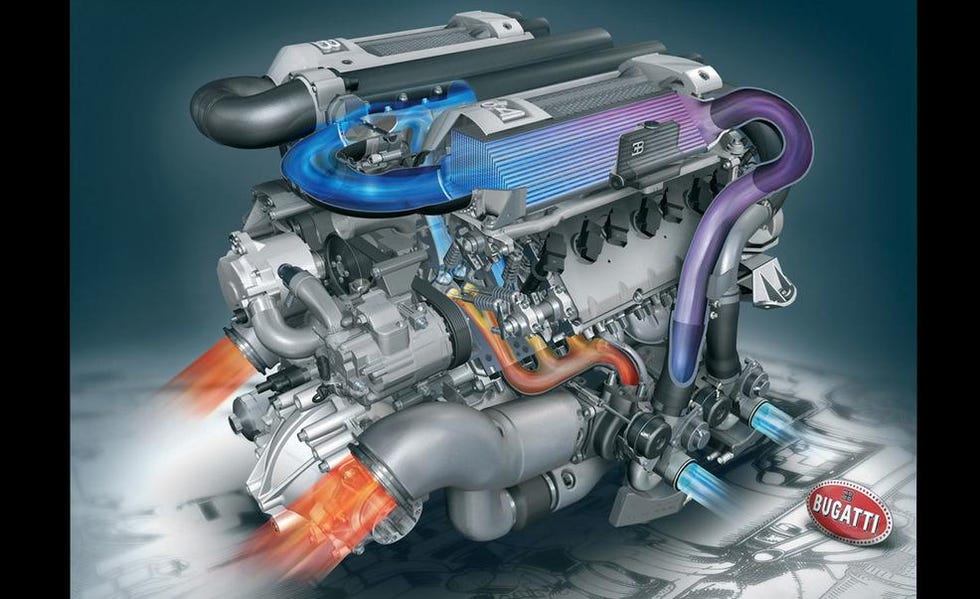Explore a Wide Variety of Engines for each Automobile and Objective
The vehicle landscape is increasingly intricate, with a diverse array of engine kinds designed to fulfill particular efficiency and effectiveness needs across numerous car categories. In addition, heavy-duty engines serve the requirements of job automobiles, while green choices are acquiring grip in the pursuit of lasting transportation.
Sorts Of Automotive Engines
Automotive engines can be classified into a number of distinct types, each made to meet certain performance and effectiveness needs. The most typical groups include interior burning engines, electrical engines, and hybrid systems.

Electric engines, on the various other hand, operate on electrical power saved in batteries, offering instantaneous torque and zero emissions. These engines are coming to be progressively preferred because of innovations in battery modern technology and the growing focus on sustainability.
Crossbreed systems combine both interior burning and electric engines, allowing automobiles to optimize fuel effectiveness and lower emissions by perfectly switching over in between power sources. Each engine type provides its drawbacks and benefits, affecting variables such as car style, planned usage, and market demand. When selecting the appropriate engine for their particular requirements., comprehending these distinctions is critical for suppliers and customers alike.
Efficiency Engines for Sports Cars
Efficiency engines for sporting activities autos are especially crafted to supply boosted speed, power, and dexterity, setting them aside from basic automobile engines. These engines frequently make use of advanced technologies such as turbocharging, turbo charging, and variable shutoff timing to maximize efficiency and responsiveness.
Generally, performance engines are made with greater compression ratios, which permit better power extraction from gas. This leads to outstanding horsepower and torque numbers, allowing rapid velocity and higher full throttle. Moreover, the lightweight products utilized in these engines, such as aluminum and carbon fiber, add to reduced total automobile weight, enhancing handling and ability to move.
Engine setups like V6, V8, and even hybrid systems are usual in performance cars, each offering distinct advantages in terms of power distribution and driving characteristics. The tuning of these engines is additionally important; numerous suppliers optimize the engine monitoring systems to offer an electrifying driving experience, commonly including sport settings that adjust throttle reaction and gear changes.
Efficient Engines for Daily Commuters
In the realm of daily travelling, efficient engines play a critical role in optimizing gas economy and decreasing emissions while giving reputable performance. As metropolitan populaces expand and environmental issues escalate, the demand for cars furnished with reliable powertrains has surged.
Modern engines developed for day-to-day travelers often integrate innovations such as turbocharging, straight gas shot, and crossbreed systems. Turbocharging improves engine performance by compeling more air into the combustion chamber, enabling for smaller, lighter engines that do not jeopardize power outcome. Straight gas shot enhances fuel atomization, causing far better burning and raised performance.
Crossbreed engines, incorporating inner burning with electrical power, more boost gas economic situation, specifically in stop-and-go website traffic, where typical engines can struggle with inadequacies. Electric electric motors help during acceleration and can operate independently at reduced rates, decreasing overall fuel consumption.
In addition, innovations in engine monitoring systems and light-weight materials contribute significantly to reliable engine design. By concentrating on performance, longevity, and ecological sustainability, suppliers remain to deliver engines that not just meet the needs of day-to-day travelling but also straighten with worldwide efforts to reduce carbon impacts.
Heavy-Duty Engines for Work Vehicles
Sturdy engines for work vehicles are consistently engineered to deliver remarkable torque and reliability under requiring conditions. These engines are made to do in environments where typical engines may fail, such as building and construction sites, logging procedures, and agricultural setups. The main focus of durable engines is their ability to produce high levels of power while preserving resilience over expanded periods of procedure.
Typically, sturdy engines use innovative materials and durable construction strategies to endure the roughness of hefty workloads. Attributes such as reinforced cyndrical tube blocks, enhanced air conditioning systems, and progressed fuel shot technologies add to their performance. These engines typically run at lower RPMs, which assists to maximize gas effectiveness while providing the needed power for carrying and towing.
In addition to mechanical effectiveness, sturdy engines are frequently furnished with innovative electronic control units (ECUs) that handle efficiency, exhausts, and diagnostics. This assimilation permits better tracking and upkeep, making certain that job vehicles remain operational and effective.
Inevitably, heavy-duty engines are a necessary part in the performance of numerous sectors, providing the necessary power and reliability to tackle the most difficult of tasks.
Eco-Friendly Engine Options
The growing emphasis on sustainability has resulted in the advancement of environmentally friendly engine choices that focus on minimized exhausts and boosted gas efficiency. These engines are created to lessen the environmental impact of cars while still supplying the efficiency and integrity anticipated by customers.
Amongst the most noteworthy environment-friendly choices are electric and hybrid engines. Hybrid engines combine typical inner combustion engines with electric propulsion, permitting lowered gas consumption and reduced greenhouse gas exhausts. Electric engines, on the other hand, run completely on battery power, producing absolutely no tailpipe exhausts and contributing to cleaner air quality.
One more promising growth is the development of biofuel engines, which make use of renewable energies, such as plant materials, to power lorries (Engines For Africa). By utilizing biofuels, these engines can reduce reliance on nonrenewable fuel sources and lower total carbon footprints

As the automobile sector progresses, environmentally friendly wikipedia reference engine alternatives will play an important role in driving the shift towards even more sustainable transportation solutions.
Final Thought
From high-performance engines that improve sporting activities vehicle capacities to reliable check my blog versions focusing on fuel economic climate for daily commuters, each type serves a particular function. Sturdy engines provide to robust work automobiles, while environment-friendly choices, such as electrical and biofuel engines, promote sustainable transportation.
